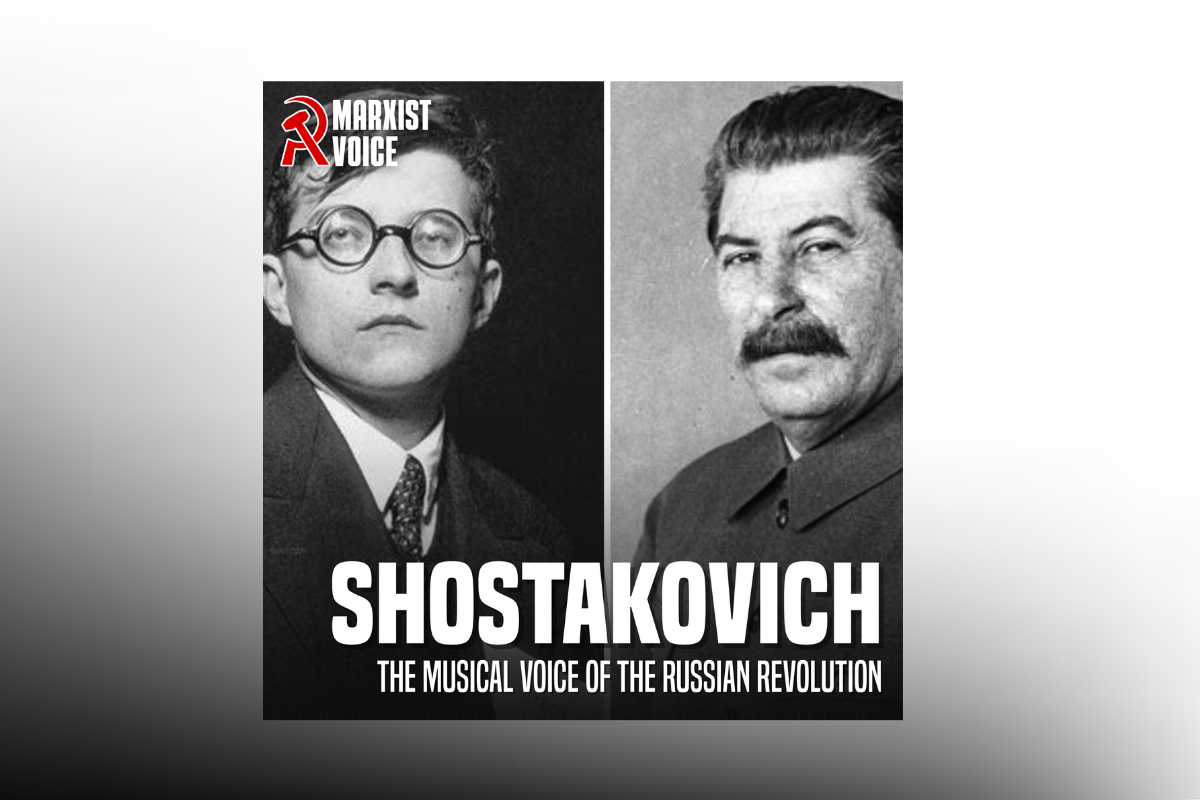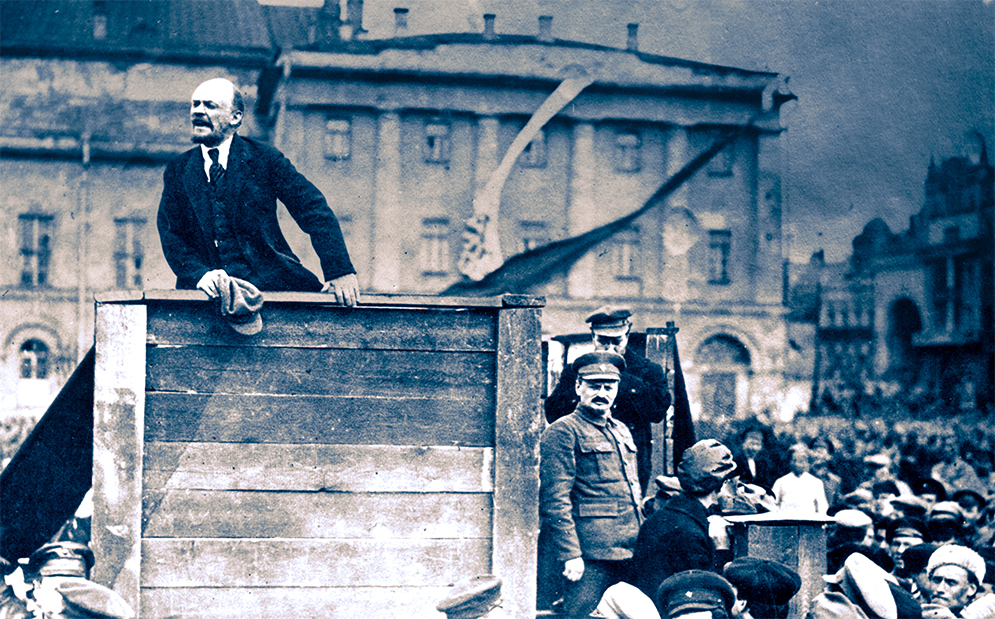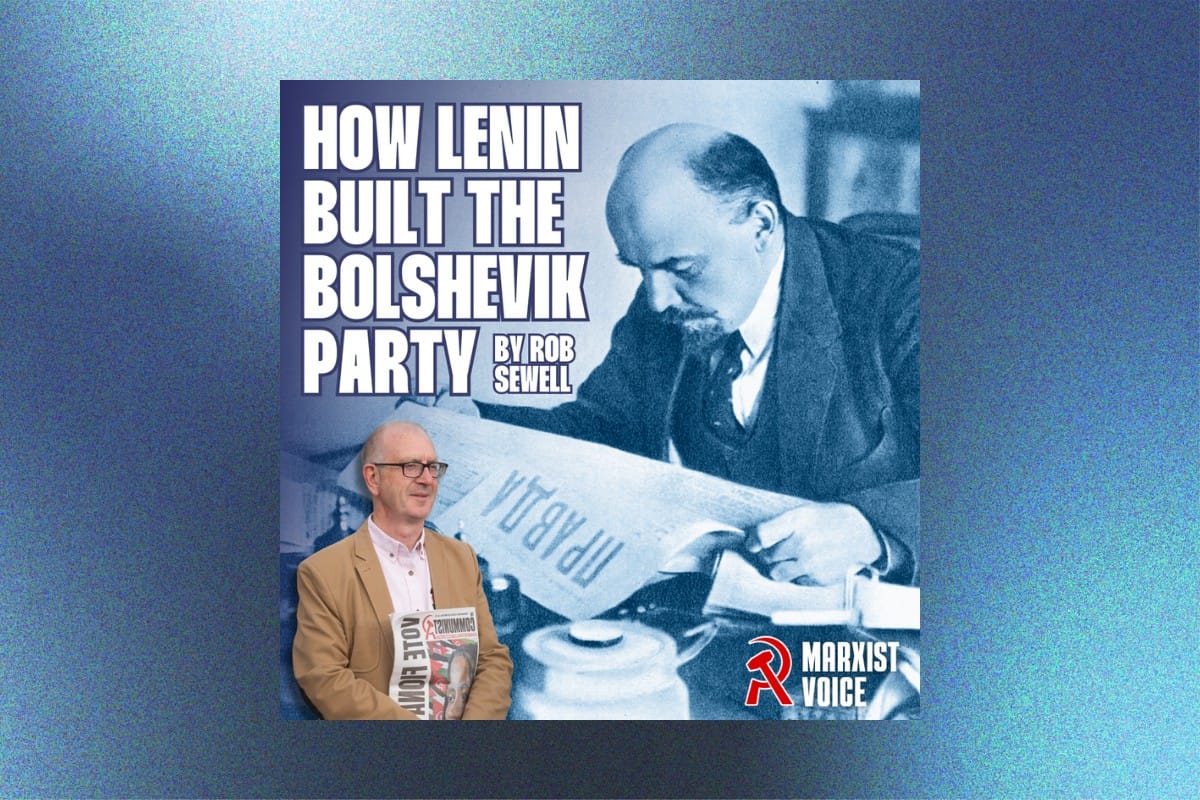In these extracts from “Year One of the Russian Revolution”, published in 1930, Victor Serge explains how the events of 1917 reflected the revolutionary forces within society and outlines the key role of the Bolshevik Party and its leadership in the October Revolution, which took place 98 years ago.
In these extracts from “Year One of the Russian Revolution”, published in 1930, Victor Serge explains how the events of 1917 reflected the revolutionary forces within society and outlines the key role of the Bolshevik Party and its leadership. In doing so, the author answers those “experts” who now call the revolution a coup or a putsch.
The masses have a million faces: far from being homogeneous, they are dominated by various and contradictory class interests; the sole means by which they can attain a clear-sighted consciousness – without which no successful action is possible – lies in organization. The rebel masses of Russia in 1917 rose to a clear consciousness of their necessary tasks, of their means and the objectives, through the organ of the Bolshevik party. This is not a theory, it is a statement of the facts. In this situation we can see, in superb relief, the relations that obtain between the party, the working class and the toiling masses in general. It is what they actually want, however confusedly, the sailors at Kronstadt, the soldiers in Kazan, the workers of Petrograd, Ivanovo-Voznesensk, Moscow and everywhere, the peasants ransacking the landlords’ mansions; it is what they all want without having the power to express their hopes firmly, to match them against the economic and the political realities, to formulate the most practical aims and choose the best means of attaining them, to select the most favourable moment for action, to extend the action from one end of the country to the other, to provide the exchanges of information and the necessary discipline, to co-ordinate the innumerable separate efforts that are going on – it is what they really want, without being able to constitute themselves into (in a word) a force of the requisite intelligence, training, will and myriad energy. What they want, then, the party expresses at a conscious level, and then carries out. The party reveals to them what they have been thinking. It is the bond which unites them from one end of the country to the other. The party is their consciousness, their organisation.
When the gunners of the Baltic fleet grew anxious for the perils hanging over the revolution, and sought a way forward, it was the Bolshevik agitator who pointed a way. And there was no other way, that much was clear. When the soldiers in the trenches wanted to voice their determination to finish with the butchery, they elected, to the committee of their battalion, the candidates of the Bolshevik party. When the peasants became tired of the procrastinations of ‘their’ Socialist-Revolutionary party, and began to ask whether it was not time to act for themselves, it was Lenin’s voice that reached them: ‘Peasant, seize the land!’ When the workers sensed counter-revolutionary intrigue all about them, it was Pravda that brought them the slogans of action that they already half-knew, the words of revolutionary necessity. In front of the Bolshevik poster the wretched folk passing by in the street stop and exclaim, ‘That’s just it!’ That is just it. This voice is their own.
That is why the progress of the masses towards revolution is reflected in one great political fact: the Bolsheviks, a small revolutionary minority in March, become in September and October the party of the majority. Any distinction between the party and the masses becomes impossible, it is all one multitude. Doubtless, scattered among the crowds, there were many other revolutionaries: Left S-Rs (the most numerous), anarchists and Maximalists, who also aim towards the revolution. These are a handful of men swept along by events, leaders who are being led. How clouded their perception of realities is, we shall see by many instances. It is the Bolsheviks who, owing to their accurate theoretical appraisal of the dynamism of events, become identified both with the labouring masses and with the necessity of history. ‘The Communists have no other interests distinct from those of the working class as a whole’: thus the Manifesto of Marx and Engels. This sentence, written in 1847, now appears to us as one of fantastic foresight.
Since the July days, the party has passed through a period of illegality and persecution, and is now barely tolerated. It forms itself into an assault column. From its members, it demands self-denial, passion and discipline; in return, it offers only the satisfaction of serving the proletariat. Yet we see its forces grow. In April it had numbered seventy-two organizations with a member-ship of 80,000. By the end of July its forces numbered 200,000 members, in 162 organizations.
The Bolshevik party had been marching towards the seizure of power, with its astonishing steadfastness, lucidity and skill, ever since the fall of the autocracy. To be convinced of this it is necessary simply to read Letters from Afar, written by Lenin before his departure from Zurich in March 1917. But perhaps, like any historical definition that tries to be precise, that is too narrow a statement. The party had been marching towards power ever since the day when its obscure Central Committee of emigrés (like Lenin and Zinoviev) declared, in 1914, that imperialist war must be transformed into civil war’, or since the even earlier day when it was born as a party of civil war at the London Congress of 1903.
When Lenin arrived in Petrograd, on 3 April 1917, he proceeded to amend the political line of the party’s central news-paper; this done, he set about defining the objectives of the working class. Tirelessly he urged the Bolshevik militants to use persuasion to win the working masses. In the first days of July, when an infuriated popular upsurge broke for the first time against the Kerensky administration, the Bolsheviks refused to follow this movement. These are leaders, in the real sense of the word, who are refusing to be led. They want to avoid a premature insurrection: the provinces are not ready, the situation is not ripe. They pull back the movement, resist the stream, risk unpopularity. The proletariat’s consciousness embodied in the party is entering into a momentary conflict with the revolutionary impatience of the masses. It is a dangerous conflict. If the enemy had been bolder and more intelligent, the masses’ impatience would have given it an easy victory. ‘Now,’ said Lenin to his friends, just after the July riots, ‘they’re going to shoot the lot of us.’ In theory Lenin might have been right; it was perhaps the bourgeoisie’s sole chance to reduce the proletariat with a preventive slaughter that would have been effective for months, if not years. Fortunately, the bourgeoisie was less skilful at its own game than Lenin was. It lacked daring (it certainly did not lack the intention).
After July, the more energetic bourgeois leaders thought of remedying this deficiency. They had ideas of a ‘strong’ authority. Russia was between two dictatorships – Kerensky’s administration could now be no more than an interregnum. Kornilov’s abortive coup (secretly aided by Savinkov and Kerensky) unleashed a fresh mobilization of the proletariat. The situation worsened, threatening to become quite desperate for the proletariat, whose privations grew daily. The workers felt, correctly, that if they could not win they would be beaten into the ground. Likewise for the peasantry: the situation worsened as they saw the agrarian revolution, promised to them by the S-Rs who were now in power, constantly deferred and in danger of summary suppression by some Napoleon of counter-revolutionary reaction. For the army and the fleet it worsened as they were still compelled to wage a hopeless war in the service of enemy classes. It worsened for the bourgeoisie, whose position was getting more precarious each day through the collapse of the transport system, depreciation of industrial equipment, defeats at the front, the crisis of production, the famine, the unruliness of the masses, the lack of authority of the new government, and the feebleness of its coercive machine.
After the July days, Lenin had remarked to V. Bonch-Bruyevich: ‘The insurrection is absolutely unavoidable. In a short while it will become imperative. It cannot fail to take place.’ From mid-September on, the party begins to prepare itself decisively for the battle. The Democratic Conference, which is supposed to act as a preparatory Parliament, is in session from 14-22 September.
Lenin, in hiding at the time, insistently demands the recall of the Bolshevik faction from the Conference, where some of the comrades would be tempted to take the role of a parliamentary opposition (though a vocal one). Supported by the majority of the party, Lenin’s line carries the day, and the Bolsheviks march out, slamming the door behind them. Trotsky reads their declaration to the remaining delegates.
The impassioned speech’ of L.D. Trotsky, who had just tasted the joys of prison life under the government of the bourgeoisie and the Mensheviks, cut like a sword through all the plots concocted by the various orators of the Centre. He told them, clearly and unmistakeably, that there was no road back for us; that the workers had no retreat in mind, and saw no other way forward except that of a new revolution. He was heard in complete silence; a tremor passed over the comfortable seats and the boxes occupied by the leaders of the bourgeoisie…. From the gallery and balcony, applause thundered down … With this the will to insurrection was clearly affirmed, and all the tact and authority of the Central Committee was needed to stop it from proceeding to immediate action, for it was still too soon – the July days could have had an even bloodier repetition.
In the last days of September (alternatively the first days of October) the Central Committee of the Bolsheviks (Lenin, Trotsky, Stalin, Sverdlov, Yakovleva, Oppokov, Zinoviev, Kamenev) met in Petrograd, in the apartment of the Menshevik Sukhanov. Even the principle of the insurrection was in dispute. Kamenev and Zinoviev (Nogin and Rykov, who were of the same opinion, being absent from this meeting) stated their view that the insurrection might perhaps itself be successful, but that it would be almost impossible to maintain power afterwards owing to the economic pressures and the crisis in the food supply. The majority voted for the insurrection, and actually fixed the date for 15 October. Let us insist on one point in this connection. This difference of judgement must emphatically not be taken as a sign of any tendency towards opportunism or Menshevik feebleness in men who had proved themselves in years of struggle and who later, throughout the whole of the civil war, were exempt from any charge of faint-heartedness. It may be taken as indicating that certain tried revolutionists were inclined to overestimate the strength of the enemy and to lack confidence, to a certain extent, in the forces of the proletariat. One does not play at insurrection. It is the duty of all revolutionaries to weigh in advance every eventuality and possibility. If they are concerned at the possible defeat of the revolution their apprehension has nothing in common with the counter-revolutionary fears of opportunists, who dread nothing more than the victory of the proletariat. Still, since these legitimate fears rested on a faulty interpretation of reality, they were immensely dangerous for the party’s whole activity, which they could have warped irreparably. Time works in favour of revolution at certain hours; works against it once the hour has passed; and an action postponed may well become an action lost to history…
Find the full book Year One of the Russian Revolution online here.






